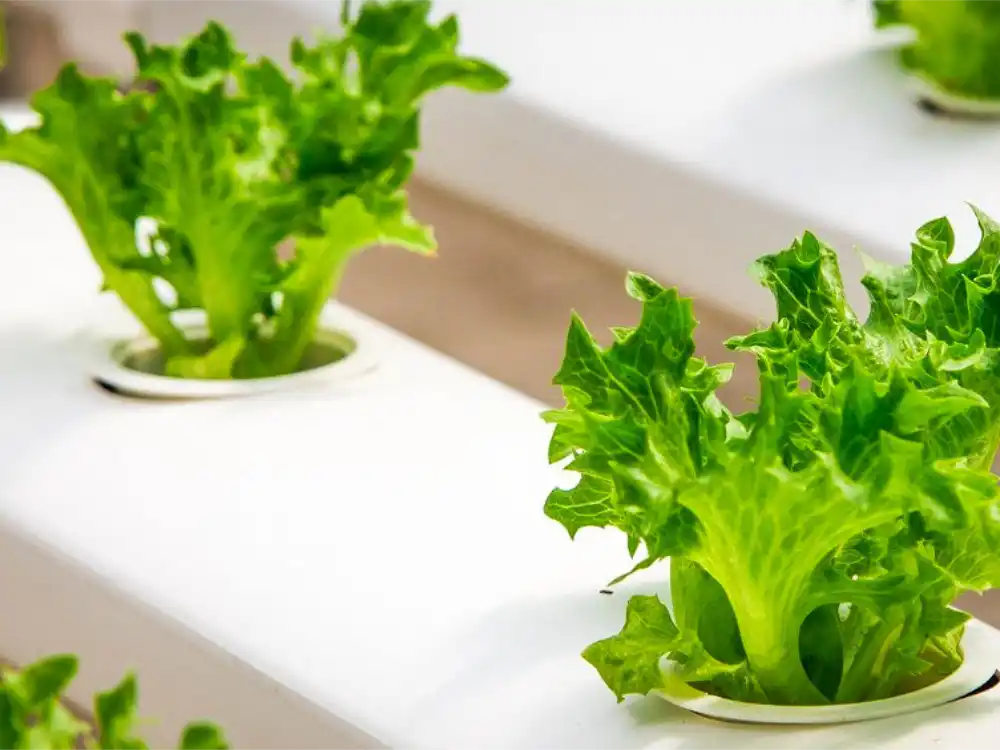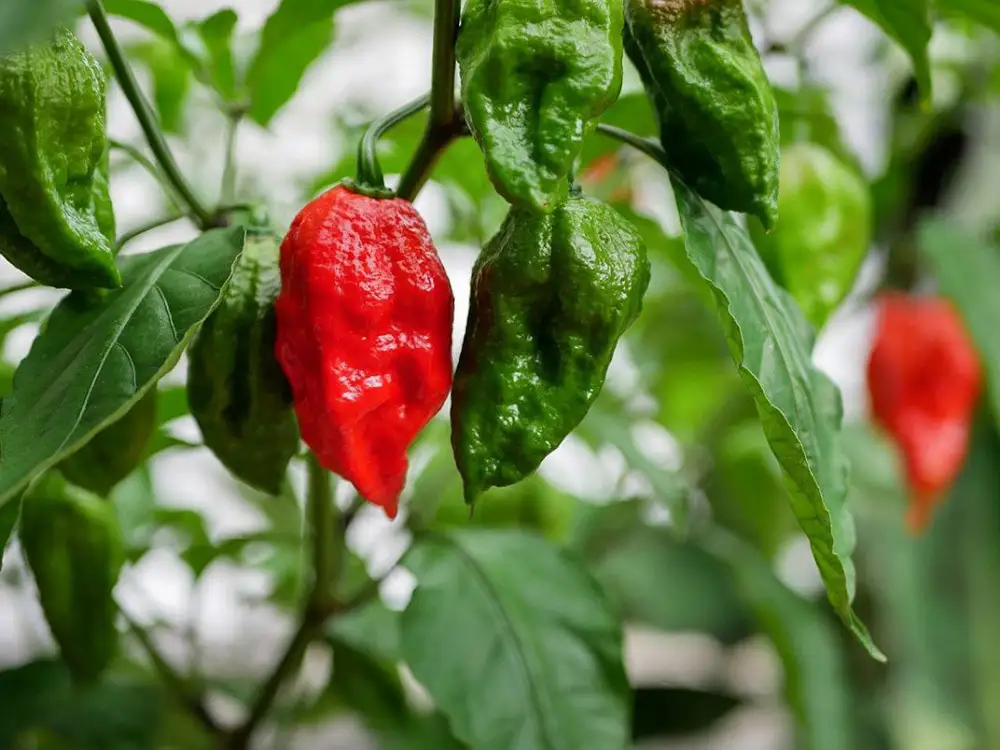If you intend on growing vegetables and other plants hydroponically, you’ll need quality nutrients. When considering the best hydroponic nutrients for vegetables there are a couple things you should consider.
Our Favorite
We’ve tested these nutrients on many types of vegetables with great success. The powder has an indefinite shelf life and is easy to store. The nutrients are the best we’ve used for growing vegetables. This is a complete solution with the same mixing ratios for the entire life cycle of the plants NOTE: This does take a few minutes to mix vs liquid forms but we found it worth the time.
No products found.
Things to Consider When Choosing the Best Hydroponic Nutrients for Vegetables
N-P-K Levels
The N-P-K levels listed for hydroponic nutrients, and other fertilizers, are representative of nitrogen (N), phosphorus (P), and potassium (K). The type of hydroponic vegetables you intend to grow will determine the ratios needed. For example, if you intend to grow mostly green leafy vegetables then nitrogen will be most important. Vegetables that flower and fruit will require high nitrogen levels as well. However, once they begin to set fruit high phosphorus and potassium levels will be important.
Price vs. Quality
Obviously, price will be a factor but don’t just go for the cheapest nutrients without considering nutrient ratios and solubility. The cheapest nutrients may or may not be the highest quality. Expensive doesn’t necessarily equal best either. Getting the best bang for the buck is the goal.
Solubility: Liquid vs. Powdered Hydroponic Nutrients for Vegetables
Some nutrients are available in a concentrated liquid form. The plus side to liquid hydroponic nutrients, they are very water soluble. The cons would be that they are generally more costly. Concentrated nutrients are usually more expensive per gallon of mixed nutrients. Shipping costs are usually more as well.
Powdered nutrients, such as Masterblend, usually have a lower cost for the nutrients and shipping cost for the same equivalent of mixed hydroponic nutrients. The only real con is that mixing with water is a little more time consuming.
Best Hydroponic Nutrients for Vegetables
Listed below are some more nutrients we’ve personally tested. While Masterblend nutrients are our favorite, these also qualify for our list of the best hydroponic nutrients for vegetables. We’ve listed the strengths and weaknesses of each product.
Runner Up
This is another great hydroponic nutrient system. We had great results with all types of vegetables. The thing we didn’t like about these nutrients is that you need to change the mixing ratios at different stages of growth. Seems to be geared more towards growing the devil’s lettuce. Cost was another factor. Expensive cost per gallon of mixed nutrients compared to Masterblend.
No products found.
Honorable Mention
Another good hydroponic nutrient for vegetables. This powdered mix requires two parts to make a complete nutrient balance. We had good results with these nutrients, not excellent results. However, with the separate grow and bloom nutrients I’m pretty certain his wasn’t produced with vegetables in mind.
No products found.
Easy to Use Hydroponic Nutrients for Vegetables
We feel that dry powder Masterblend is the clear winner. It provides all the required nutrients at the proper levels. On paper some of the concentrated liquid forms of hydroponic nutrients sound like they would outperform the Masterblend nutrients. However, our real-world experience showed that the Masterblend produced excellent results. We saw no improvement in growth or harvest when using General Hydroponics nutrients.
All three parts of the Masterblend hydroponic nutrients can be mixed at the same ratios in all growth stages of the vegetables. General Hydroponics require the hassle of mixing different nutrient ratios at different growth stages.
The Masterblend dry powders are easy to store, we put the excess powder in Tupperware containers. When combined with water the total gallons of mixed solution beat out the General Hydroponics: Flora Series and Maxigro/Maxibloom nutrients by a huge margin. Masterblend currently has a 5-star rating on Amazon, not an easy accomplishment in such a competitive market.
FAQ: Hydroponic Nutrients For Vegetables
Can I Use Soil Nutrients in Hydroponics?
Generally speaking, fertilizers made for soil won’t work as hydroponic nutrients. Most soil fertilizers require bacteria to break them down into a usable form for the plants. A good example of this is urea nitrogen.

As you can see in the image (left), there is no urea nitrogen in the hydroponic nutrients (right) but a high percentage of the total nitrogen in the soil fertilizer. Only the ammoniacal and nitrate nitrogen can be taken up directly by plants. Again, you’ll see a huge difference in the percentages.
What nutrients do hydroponic vegetables need?
All plants require three main nutrients: nitrogen, phosphorus, and potassium. However, the best hydroponic nutrients will contain all these micronutrients as well: calcium, magnesium, sulphur, iron, manganese, copper, zinc, molybdenum, boron, chlorine.
What is the best hydroponic fertilizer for tomatoes and peppers?
Here again, the Masterblend dry powder nutrients are a clear choice. It contains high amounts of phosphorus and potassium which tomato plants use heavily when producing fruit. We’ve had excellent results when growing tomato plants, the same way we grow Kratky peppers, in coconut coir.
What is the easiest hydroponic fertilizer?
Easiest is really a matter of opinion. What do you consider easy? We think the dry powder Masterblend is easiest because it’s the same mixing ratios for the life of the plant but requires some mixing before use. For those starting out, you may find it easier to use premixed liquid nutrients such as General Hydroponics Flora Series but will require different ratios at different stages of growth.
Do hydroponic nutrients go bad?
You won’t have to worry about your hydroponic nutrients spoiling the same way as food. They do, however, need to be stored properly. Liquid nutrients should be kept away from light to ensure algae doesn’t start growing in the bottle. Dry powder hydroponic nutrients should be kept dry to prevent it from caking.
Can hydroponics be organic?
While there are a few hydroponic nutrient brands that are considered organic, most are not. In recent years strides have been made to grow organically using hydroponics. However, the National Organic Standards Board (NOSB) is not quick to allow hydroponic systems, or even aeroponics, to earn the label of organic.



How long will Master Blend be viable in a 900 gallon tank I am using one to refill my smaller 27 gallon that I pump from for my system.
I don’t think there’s a limit for how long it can be stored once mixed. I would however make sure it gets stirred occasionally. I go thru about 120 gallons every two weeks with no issue.